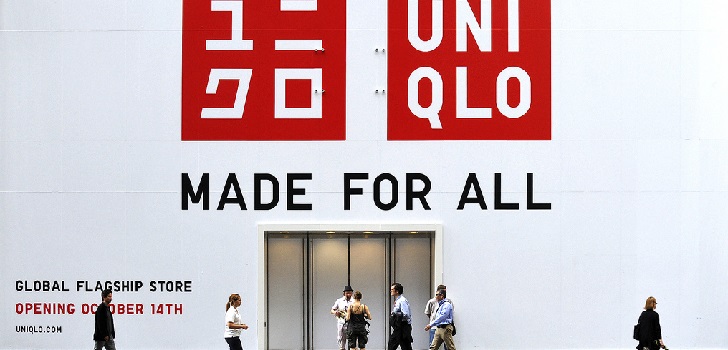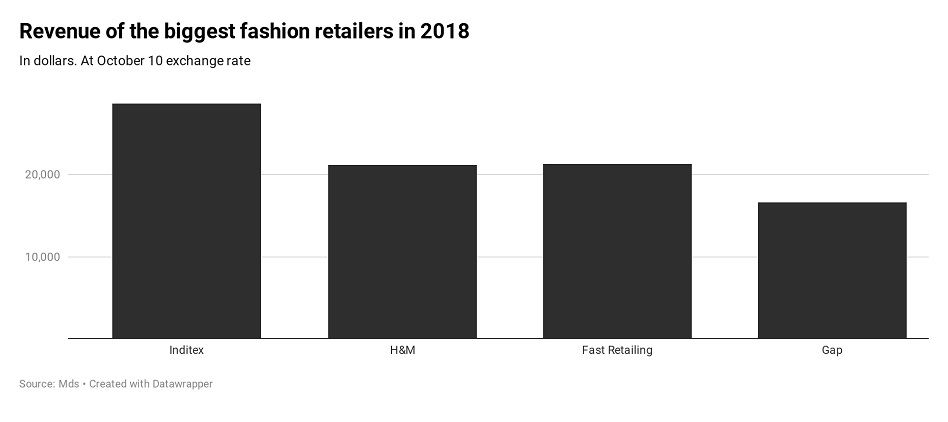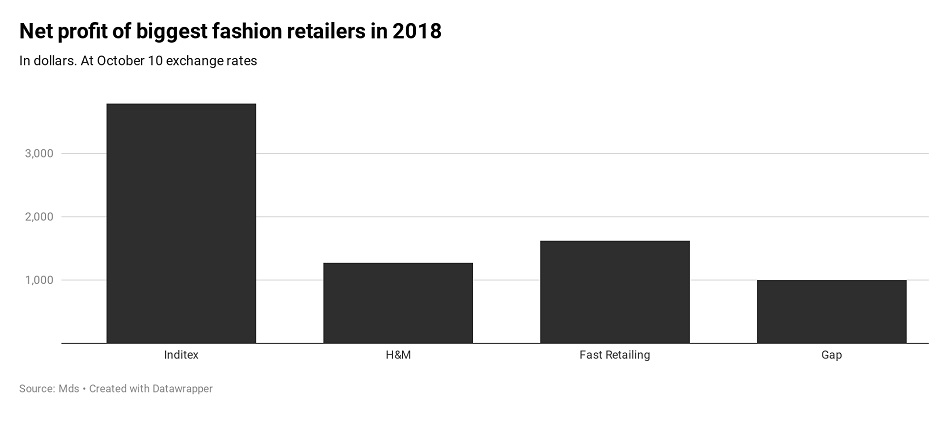Fast Retailing overcomes H&M as world’s second largest fashion retailer
The owner of Uniqlo has closed its last fiscal year with a revenue of 21.3 billion dollars (at yesterday’s exchange rates), overcoming 21.1 billion dollars registered by H&M.

And the Swedish prince has fallen. After beating Gap in the fashion global ranking, Fast Retailing has now surpassed the Swedish giant and has become the second biggest fashion retailer in the world by revenue. In the lead continues the Spanish Inditex, but the movements of the ranking in the last decade prove that no one is invincible.
Fast Retailing closed its fiscal year 2018 (ended in August this year) with a revenue of 2.2 trillion yen (21.3 billion dollars, at yesterday exchange rates). H&M, meanwhile, registered sales of 210billion Swedish Krones (21.1 billion dollars).
For just 200 million dollars, H&M has lost the second place for the first time since it got there in 2015. The Swedish company is in the middle of a transformation plan to return to profitability and gain contact with the consumer.
The surpass was due to the rapid growth of Fast Retailing, which led to an increase of 7.5% last year. On the other hand, H&M grew by 5.2%, a rate higher than the one registered the previous year but not enough to stop the Japanese giant.
The first and fourth of the list are more than 5 billion dollars away: in the lead, Inditex, with a revenue of 28.6 billion dollars last year, at the bottom, Gap, with 16.5 billion in sales.

Few believed Tadashi Yanai, founder and CEO of Fast Retailing, when he stated a decade ago that he wanted the group to become the biggest fashion retailer in the world by 2020, with a revenue of 42 billion dollars.
Over time, Yanai adjusted his forecast (not even Inditex has approached those figures) but has not stopped conquering new places in a ranking that has completely changed in a decade.
In 2009, Gap led the list with sales for 14.1 billion dollars. Inditex was second and fully immerse in its global conquest and almost at the same level as H&M with 10 billion dollars.
But the Spanish played with an advantage: it had the entire world to conquer and this allowed it to shoot its way up in the ranking and finally obtained the top in 2011. On the other hand, Fast Retailing, that arrived like a rocket, the group is now on full expansion with Uniqlo and its growth capacity may be greater than the one of the Spanish giant.
While H&M and Inditex had international presence for many years, Uniqlo’s international sales didn’t overcame those in Japan until 2017. In 2018, the chain was once again the power of the group, with a growth of 14.5%, up to 9.5 billion dollars.

Digital transformation is now a new factor in the battle. An arena that was hardly completed ten years ago and in which Inditex and Fast Retailing seem better positioned than their rivals.
The Japanese is, once again, confident. The company expects to reach a consolidated revenue of 24.4 billion dollars in 2020, an operating profit of 2.7 billion dollars and a net profit of 1.6 billion dollars.
While Gap, Inditex and H&M restructured their store networks, Fast Retailing continues to expand, with a forecast to reach 3,745 stores in August 2020, close to the 3,877 of Gap and still far from the 5,000 of H&M and 7,000 of Inditex.
The battle for profit
In terms of profitability, Fast Retailing had already overcome H&M the previous year. While its results were impacted by restructuring and investments, Fast Retailing continued to gain weight at a stable pace.
This year, the Japanese announced its first profit warning in three years, and finally closed the year with a net profit of 1.6 billion dollars, 2.17% more. H&M, on the other hand, sank its net profit by 21.8%, to 1.2 billion dollars.
Inditex, on the other hand, remained the unbeatable leader also in profit, with 3.7 billion dollars, 2.2% more. Gap was the one that increased the most last year, with a rise of 18.2%, up to 1 billion dollars.


info@themds.com
Validation policy for comments:
MDS does not perform prior verification for the publication of comments. However, to prevent anonymous comments from affecting the rights of third parties without the ability to reply, all comments require a valid email address, which won’t be visible or shared.
Enter your name and email address to be able to comment on this news: once you click on the link you will find within your verification email, your comment will be published.